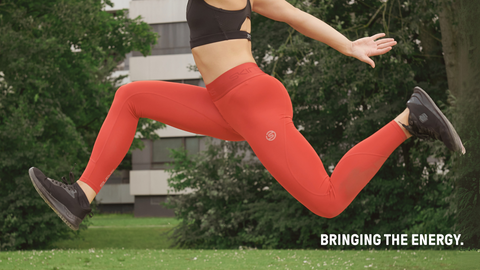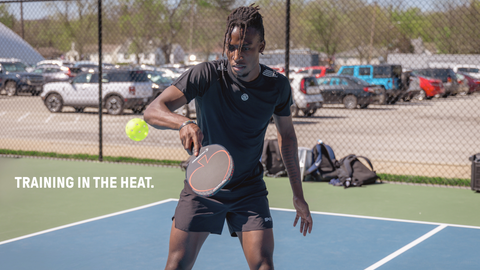Tennis is a demanding sport that requires a combination of speed, endurance, agility, and mental toughness. While training and practice are key components of success, proper nutrition is just as important to ensure you’re performing at your best. Whether you're hitting the court for a friendly match or competing in a tournament, what you eat can significantly impact your energy levels, recovery, and overall performance. In this blog, we’ll explore essential nutrition tips that every tennis player should know to fuel their game and keep their body performing at its peak.
- Focus on Carbohydrates for Energy
Carbohydrates are the primary fuel source for tennis players. Tennis involves short bursts of high-intensity movement, which rely heavily on glycogen (stored carbohydrates) in your muscles. To keep your energy levels high, it’s crucial to consume enough carbs before, during, and after your matches.
- Before the match: Aim for complex carbohydrates like whole grains, sweet potatoes, and fruits 2-3 hours before a match. This will provide long-lasting energy to sustain you throughout the game.
- During the match: For long matches, consider quick-digesting carbs like bananas or sports drinks to replenish glycogen stores and keep energy levels up.
- After the match: Refuel with a combination of carbs and protein to help replenish glycogen and support muscle recovery. Good options include a turkey sandwich on whole-grain bread or a smoothie with fruit and protein powder.
2. Protein for Muscle Recovery and Strength
Tennis places a lot of strain on your muscles, especially in your legs, arms, and core. Protein is essential for repairing and building muscles after intense matches or training sessions. Make sure to include lean sources of protein in your daily meals, such as:
- Chicken, turkey, and lean beef
- Fish and seafood
- Eggs and dairy products
- Plant-based options like beans, lentils, tofu, and quinoa
A post-match meal or snack that includes both carbs and protein will help repair muscle damage and get you back on the court feeling stronger.
3. Stay Hydrated: Water and Electrolytes
Hydration is critical for tennis players, especially during long matches or when playing in hot weather. Dehydration can lead to fatigue, cramping, and a decline in performance, so it’s important to stay on top of your fluid intake.
- Before the match: Drink plenty of water leading up to your match, ideally starting the day before.
- During the match: Drink water regularly during breaks, and consider an electrolyte drink if you’re sweating heavily or playing for an extended period. Electrolytes (sodium, potassium, magnesium) help maintain fluid balance and prevent cramping.
- After the match: Rehydrate with water or an electrolyte-rich drink to replenish lost fluids and support recovery.
A good rule of thumb is to drink water even when you don’t feel thirsty, as thirst is often a late sign of dehydration.
4. Timing Your Meals: When to Eat Before and After a Match
When it comes to tennis, timing your meals is just as important as what you eat. Eating too close to a match can lead to discomfort, while not eating enough beforehand can leave you feeling fatigued and sluggish. Here’s a general guideline to follow:
- 2-3 hours before the match: Eat a balanced meal with complex carbs, protein, and healthy fats. This meal should be substantial enough to fuel your energy reserves but light enough to digest easily. Examples include oatmeal with fruit and nuts or grilled chicken with quinoa and vegetables.
- 30-60 minutes before the match: If you need a quick energy boost closer to the match, opt for a small snack, such as a banana with peanut butter, a granola bar, or a handful of almonds.
- After the match: Within 30 minutes of finishing your game, refuel with a snack that contains both carbs and protein to kick-start muscle recovery. Follow this up with a more balanced meal an hour or two later to fully replenish energy stores.
- Healthy Fats for Long-Lasting Energy
While carbs and protein are often emphasized, healthy fats also play a key role in supporting sustained energy and overall health for tennis players. Healthy fats are essential for brain function, hormone regulation, and joint health—all important for maintaining peak performance on the court. Include sources of healthy fats in your diet, such as:
- Avocados
- Nuts and seeds
- Olive oil and coconut oil
- Fatty fish like salmon and mackerel
Just be mindful of portion sizes, as fats are calorie-dense and can slow digestion if consumed in large amounts before a match.
6. Don’t Forget About Micronutrients
Vitamins and minerals, though required in smaller amounts, are critical for your body’s optimal performance. Tennis players should ensure they’re getting enough of these key micronutrients:
- Magnesium and potassium: Important for muscle function and cramp prevention. Found in foods like leafy greens, bananas, and almonds.
- Calcium and Vitamin D: Essential for bone health, particularly with the repetitive stress that tennis places on your joints. Include dairy products, leafy greens, and fortified foods in your diet.
- Iron: Helps transport oxygen to your muscles, which is critical for endurance. Lean red meat, spinach, and legumes are good sources of iron.
A well-balanced diet with a variety of fruits, vegetables, lean proteins, and whole grains will help you meet your micronutrient needs.
Conclusion: Fuel Your Game the Right Way
Nutrition is a powerful tool that can help elevate your tennis performance, improve recovery, and reduce the risk of injury. By focusing on a balanced diet rich in carbohydrates, protein, healthy fats, and key micronutrients, you’ll be able to fuel your body for optimal performance both on and off the court. And don’t forget the importance of hydration—staying properly hydrated can be the difference between finishing a match strong or hitting a wall.






